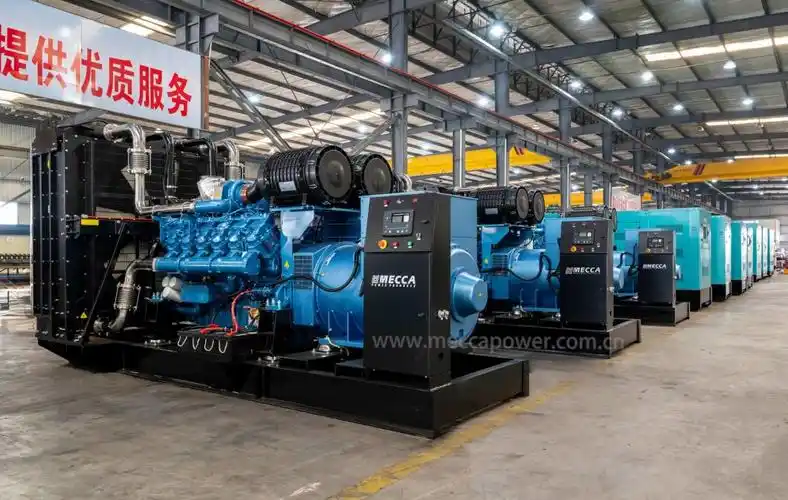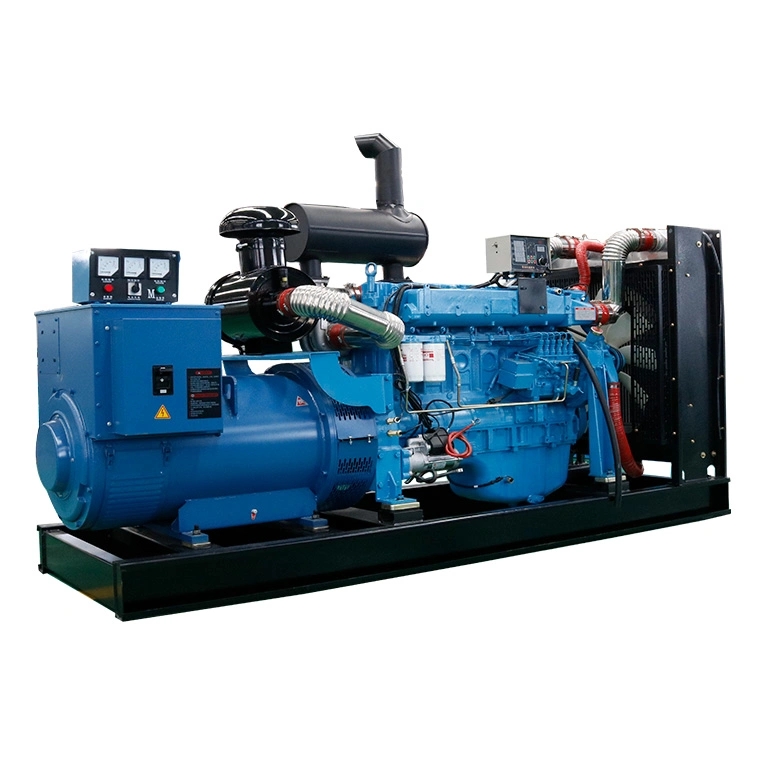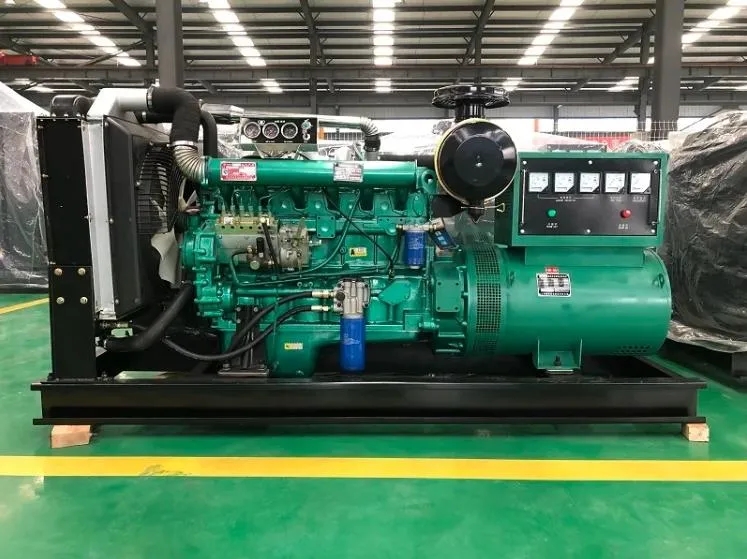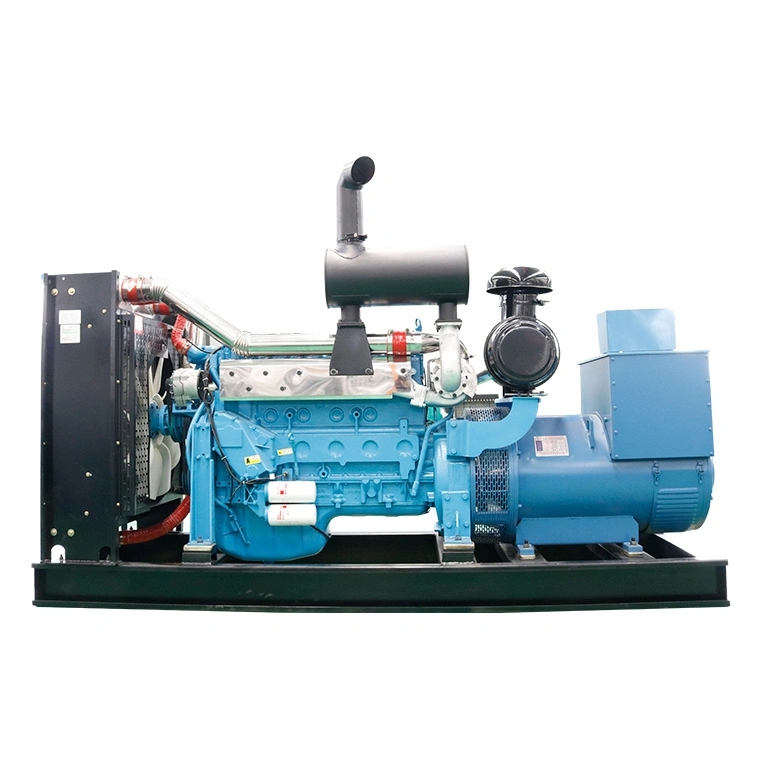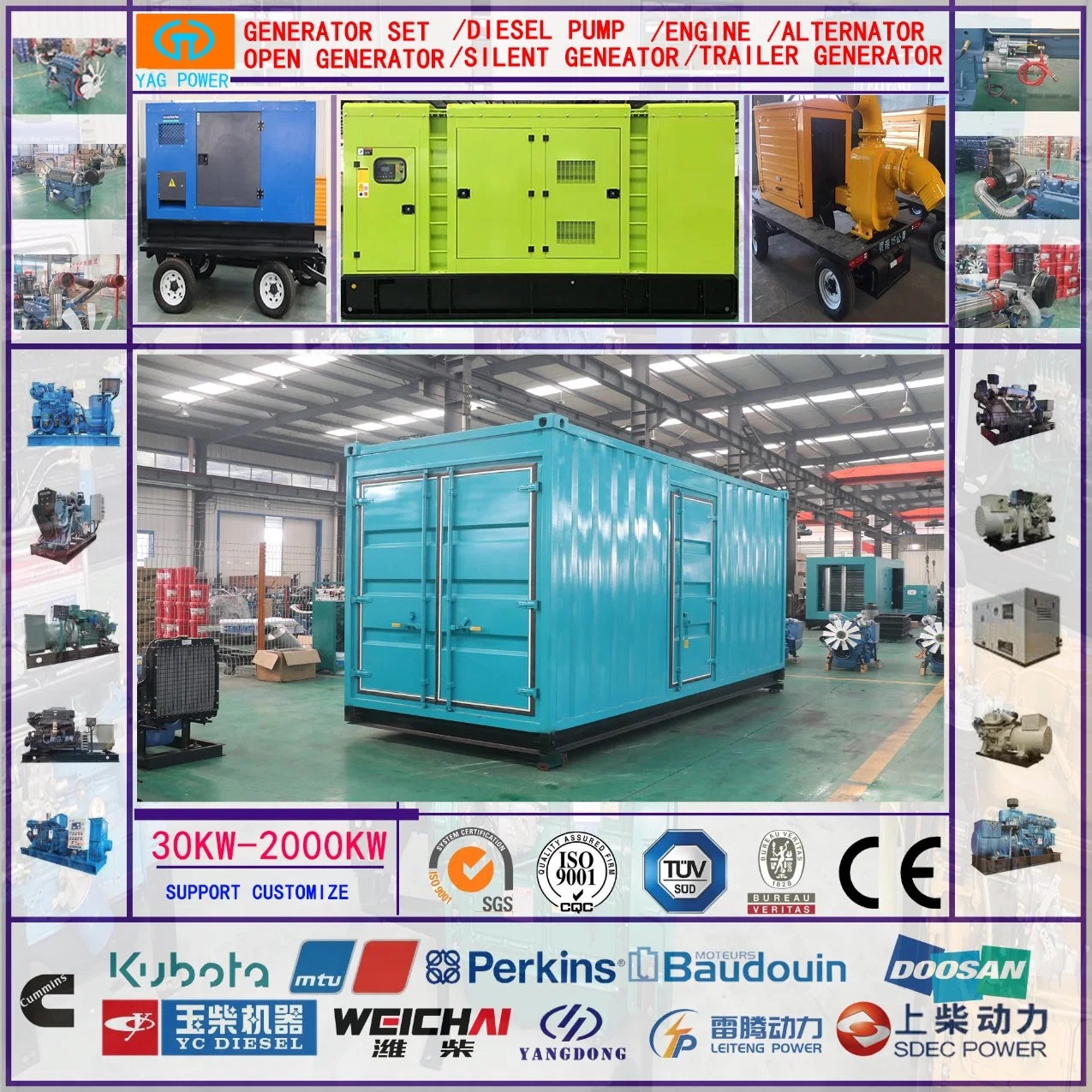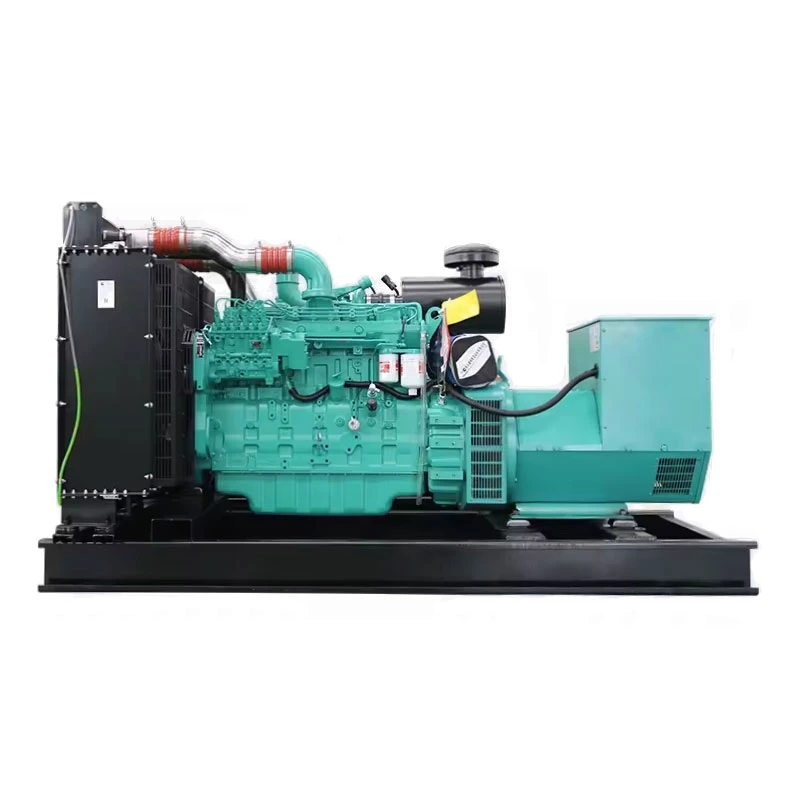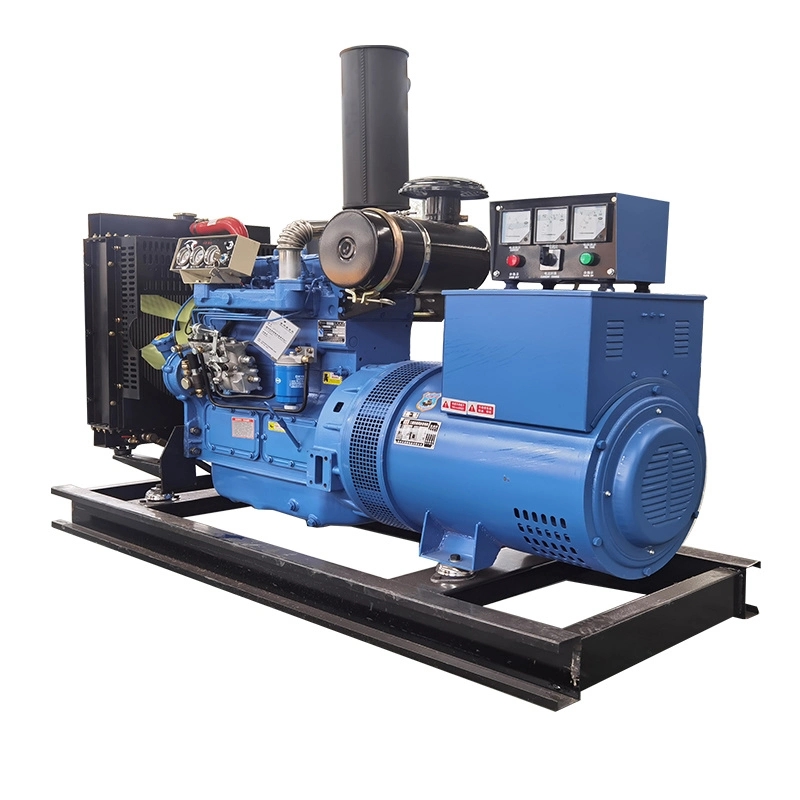Table of Contents
Toggle
In today’s dynamic industrial landscape, where uninterrupted power supply is paramount, industrial diesel generators have emerged as indispensable workhorses. These robust machines play a crucial role in ensuring operational continuity across diverse sectors, from manufacturing plants and construction sites to healthcare facilities and data centers. This comprehensive guide delves into the intricacies of industrial diesel generators, shedding light on their functionality, advantages, and applications, empowering you with the knowledge to make informed decisions.
The Essence of Industrial Diesel Generators
Industrial diesel generators are specialized power generation systems designed to meet the demanding requirements of commercial and industrial environments. At their core, these generators combine the power of a diesel engine with an electric generator, harnessing the energy stored in diesel fuel to produce electrical energy. This self-contained unit provides a reliable and efficient source of power, ensuring critical operations remain uninterrupted, even in the face of utility outages or remote locations without grid access.
Dissecting the Components
To truly appreciate the inner workings of industrial diesel generators, it’s essential to understand their key components and how they harmoniously operate. These generators comprise several integral parts, each playing a vital role in the power generation process:
- Diesel Engine: The heart of the system, the diesel engine converts the chemical energy stored in diesel fuel into mechanical energy through the combustion process.
- Alternator: Also known as the generator, this component harnesses the mechanical energy produced by the diesel engine and converts it into electrical energy through the principle of electromagnetic induction.
- Fuel System: Responsible for storing, filtering, and delivering the diesel fuel to the engine, ensuring a consistent and reliable fuel supply.
- Cooling System: Industrial diesel generators generate significant heat during operation, necessitating an efficient cooling system to dissipate excess heat and maintain optimal operating temperatures.
- Exhaust System: This system safely expels the combustion byproducts, such as exhaust gases, away from the generator and its surroundings.
- Lubrication System: Akin to the lubrication system in automobiles, this component ensures smooth operation by reducing friction and wear between moving parts within the engine.
- Control Panel: Acting as the nerve center, the control panel monitors and regulates various aspects of the generator’s performance, including fuel consumption, voltage output, and safety parameters.
Harnessing the Power: Operational Principles
The operational principle of industrial diesel generators revolves around the conversion of chemical energy into electrical energy. When the generator is activated, the battery initiates the fuel system, pumping diesel fuel into the engine. The diesel engine then converts the fuel’s chemical energy into mechanical energy through the combustion process.
The alternator, coupled to the engine, harnesses this mechanical energy and generates an alternating current (AC) through the principle of electromagnetic induction. The voltage regulator ensures that the voltage and amperage of the AC current remain consistent, regardless of fluctuations in the engine’s speed.
While the engine and alternator are at the heart of the power generation process, other components play crucial supporting roles. The cooling system regulates the waste heat generated by the engine and alternator, while the exhaust system safely expels combustion byproducts. The lubrication system ensures smooth operation by reducing friction between moving parts, and the control panel oversees and manages the entire system’s performance.
Advantages of Industrial Diesel Generators
Industrial diesel generators offer a multitude of advantages that make them a preferred choice across various industries. Here are some of the key benefits:
- Reliability: Renowned for their durability and robustness, industrial diesel generators are engineered to withstand the rigors of industrial environments, ensuring reliable power delivery even in challenging conditions.
- Fuel Efficiency: Compared to gasoline engines, diesel engines boast superior fuel efficiency, translating into cost savings over the long run.
- Continuous Operation: With ample fuel storage capacity, industrial diesel generators can operate continuously for extended periods, making them ideal for applications that demand uninterrupted power supply.
- Versatility: These generators can be tailored to meet specific power requirements, ranging from small-scale applications to large-scale industrial facilities, offering scalability and flexibility.
- Portability: While some industrial diesel generators are designed for stationary installations, others are portable, enabling their deployment in remote locations or temporary job sites.
- Environmental Compliance: Modern industrial diesel generators are designed to meet stringent emission regulations, ensuring a reduced environmental impact.
Applications Across Industries
The versatility of industrial diesel generators extends across a wide array of industries, each with unique power requirements and operational demands. Here are some notable applications:
1. Construction and Mining
Construction sites and mining operations often operate in remote areas without access to the power grid. Industrial diesel generators provide a reliable source of power for heavy machinery, lighting, and other equipment, ensuring uninterrupted operations and increased productivity.
2. Healthcare Facilities
In the healthcare sector, where power outages can have life-threatening consequences, industrial diesel generators serve as critical backup power sources. Hospitals, clinics, and other medical facilities rely on these generators to maintain essential services, such as life-support systems, operating rooms, and emergency lighting, ensuring patient safety and continuity of care.
3. Data Centers and Telecommunications
Data centers and telecommunication facilities require uninterrupted power to ensure continuous operation and prevent data loss or communication disruptions. Industrial diesel generators provide redundant power sources, ensuring seamless operations during grid failures or maintenance periods.
4. Manufacturing and Processing Plants
Manufacturing and processing plants often employ industrial diesel generators as primary or backup power sources to maintain production lines, machinery, and critical systems. These generators ensure operational continuity, minimizing downtime and associated financial losses.
5. Emergency Services and Disaster Relief
In times of natural disasters or emergencies, industrial diesel generators play a crucial role in powering emergency services, shelters, and relief efforts. Their portability and self-contained nature make them invaluable assets in situations where the power grid is compromised or inaccessible.
Selecting the Right Industrial Diesel Generator
Choosing the appropriate industrial diesel generator is a critical decision that requires careful consideration of several factors. Here are some key considerations:
- Power Requirements: Accurately assess your facility’s power demands, including peak loads, load fluctuations, and future expansion plans, to ensure the generator can meet your current and future needs.
- Fuel Availability and Storage: Evaluate the availability of diesel fuel in your area and determine the necessary fuel storage capacity to ensure uninterrupted operation during extended power outages.
- Environmental Regulations: Ensure compliance with local and national emission regulations by selecting generators that meet the required emission standards.
- Noise Levels: Consider the noise levels generated by the generator, especially if it will be installed in proximity to residential areas or noise-sensitive environments.
- Maintenance and Support: Evaluate the manufacturer’s reputation, availability of spare parts, and access to reliable maintenance and support services to ensure optimal performance and longevity.
- Scalability and Redundancy: Assess the potential need for scalability or redundancy, as some applications may require multiple generators or the ability to seamlessly integrate additional units in the future.
Fuel Management: A Critical Consideration
Effective fuel management is a critical aspect of operating industrial diesel generators. Diesel fuel is a finite resource, and proper storage, handling, and monitoring are essential to ensure uninterrupted operation and optimal performance. Here are some key considerations:
- Fuel Storage: Invest in appropriate fuel storage facilities that comply with local regulations and industry best practices. Proper storage conditions, such as temperature and humidity control, can help prolong the fuel’s shelf life and prevent degradation.
- Fuel Quality: Regular fuel testing and monitoring are essential to ensure the fuel meets the required specifications and is free from contaminants that could compromise the generator’s performance or longevity.
- Fuel Delivery and Replenishment: Establish reliable fuel delivery and replenishment processes to ensure an adequate fuel supply is maintained, especially during extended power outages or high-demand periods.
- Fuel Consumption Monitoring: Implement systems to monitor fuel consumption rates, enabling accurate forecasting of fuel requirements and timely replenishment.
- Fuel Treatment: Consider implementing fuel treatment protocols, such as the use of biocides and stabilizers, to prevent fuel degradation and extend its usable lifespan.
Maintenance and Longevity
Like any complex machinery, industrial diesel generators require regular maintenance to ensure optimal performance, longevity, and reliability. Proper maintenance not only extends the generator’s lifespan but also enhances its efficiency, reducing operational costs and minimizing the risk of unexpected breakdowns. Here are some key maintenance considerations:
- Scheduled Maintenance: Adhere to the manufacturer’s recommended maintenance schedules, which typically include regular oil changes, filter replacements, and inspections of critical components.
- Coolant and Lubrication System Maintenance: Regularly inspect and maintain the coolant and lubrication systems to ensure proper cooling and lubrication, preventing premature wear and tear.
- Fuel System Maintenance: Perform regular fuel system maintenance, including filter replacements and inspections, to prevent fuel contamination and ensure efficient fuel delivery.
- Load Testing: Conduct periodic load testing to verify the generator’s performance under simulated load conditions, identifying any potential issues before they escalate.
- Record Keeping: Maintain detailed records of maintenance activities, fuel consumption, and performance data to identify trends and facilitate predictive maintenance strategies.
- Trained Technicians: Employ trained and certified technicians for maintenance and repair work, ensuring adherence to manufacturer specifications and industry best practices.
Environmental Considerations and Emission Regulations
As environmental concerns continue to gain prominence, industrial diesel generators must comply with stringent emission regulations to mitigate their environmental impact. Manufacturers have made significant strides in developing cleaner and more efficient generators, incorporating advanced technologies to reduce emissions and improve fuel efficiency. Here are some key environmental considerations:
- Emission Standards: Ensure compliance with local and national emission standards, such as the Environmental Protection Agency (EPA) or European Union (EU) regulations, by selecting generators that meet or exceed the required emission levels.
- Exhaust Aftertreatment Systems: Many modern industrial diesel generators incorporate exhaust aftertreatment systems, such as selective catalytic reduction (SCR) or diesel particulate filters (DPF), to reduce harmful emissions like nitrogen oxides (NOx) and particulate matter (PM).
- Fuel Efficiency: Improved fuel efficiency not only reduces operational costs but also contributes to lower greenhouse gas emissions and a smaller carbon footprint.
- Noise Reduction: Industrial diesel generators can generate significant noise levels, necessitating the implementation of noise-reduction measures, such as sound-attenuating enclosures or barriers, to minimize disturbance in noise-sensitive areas.
- Renewable Fuel Options: Explore the possibility of using renewable fuel sources, such as biodiesel or renewable diesel, to further reduce the generator’s environmental impact.
Integration with Renewable Energy Sources
As the world transitions towards a more sustainable energy future, industrial diesel generators are increasingly being integrated with renewable energy sources, such as solar and wind power. This hybrid approach combines the reliability and versatility of diesel generators with the environmental benefits of renewable energy, creating a more resilient and eco-friendly power solution. Here are some key considerations:
- Hybrid Power Systems: Industrial diesel generators can be seamlessly integrated with renewable energy sources, such as solar panels or wind turbines, to create hybrid power systems that optimize energy utilization and reduce reliance on fossil fuels.
- Peak Shaving and Load Shifting: By combining renewable energy sources with diesel generators, facilities can leverage the generators for peak shaving or load shifting, reducing the strain on the grid during periods of high demand.
- Energy Storage Systems: Incorporating energy storage systems, such as batteries or flywheel systems, can enhance the efficiency and reliability of hybrid power systems by storing excess energy generated from renewable sources for later use.
- Intelligent Control Systems: Advanced control systems and energy management software can optimize the operation of hybrid power systems, ensuring seamless integration and efficient utilization of energy sources.
- Microgrid Applications: Industrial diesel generators can play a vital role in microgrid applications, providing backup power and ensuring grid resilience in remote or isolated communities.
Future Outlook and Emerging Technologies
The industrial diesel generator industry is continuously evolving, driven by technological advancements and the pursuit of greater efficiency, reliability, and sustainability. Here are some emerging technologies and trends shaping the future of industrial diesel generators:
- Alternative Fuel Sources: Researchers are exploring the potential of alternative fuel sources, such as biofuels, hydrogen, and synthetic fuels, to power industrial diesel generators, reducing their carbon footprint and environmental impact.
- Hybrid and Electric Generators: The integration of electric motors and batteries with diesel engines is gaining traction, creating hybrid or fully electric generators that offer improved efficiency and reduced emissions.
- Advanced Control and Monitoring Systems: The adoption of advanced control and monitoring systems, powered by artificial intelligence and machine learning, can optimize generator performance, predict maintenance needs, and enhance overall system efficiency.
- Modular and Scalable Designs: Modular and scalable generator designs are becoming more prevalent, allowing for easy expansion or reconfiguration to meet evolving power demands.
- Remote Monitoring and Predictive Maintenance: The integration of Internet of Things (IoT) technologies and remote monitoring capabilities enables real-time monitoring, predictive maintenance, and proactive issue resolution, reducing downtime and maintenance costs.
Conclusion
Industrial diesel generators have solidified their position as indispensable power sources across a wide range of industries. Their reliability, versatility, and efficiency make them the go-to solution for ensuring uninterrupted operations, even in the face of power outages or off-grid scenarios.
As you navigate the world of industrial diesel generators, remember to carefully assess your power requirements, prioritize environmental considerations, and partner with reputable manufacturers and service providers. By staying informed and embracing emerging technologies, you can future-proof your power solutions and contribute to a more sustainable and resilient industrial landscape.
Whether you’re powering a remote construction site, a critical healthcare facility, or a data-intensive telecommunications network, industrial diesel generators stand ready to deliver the reliable and efficient power you need to keep your operations running smoothly.




